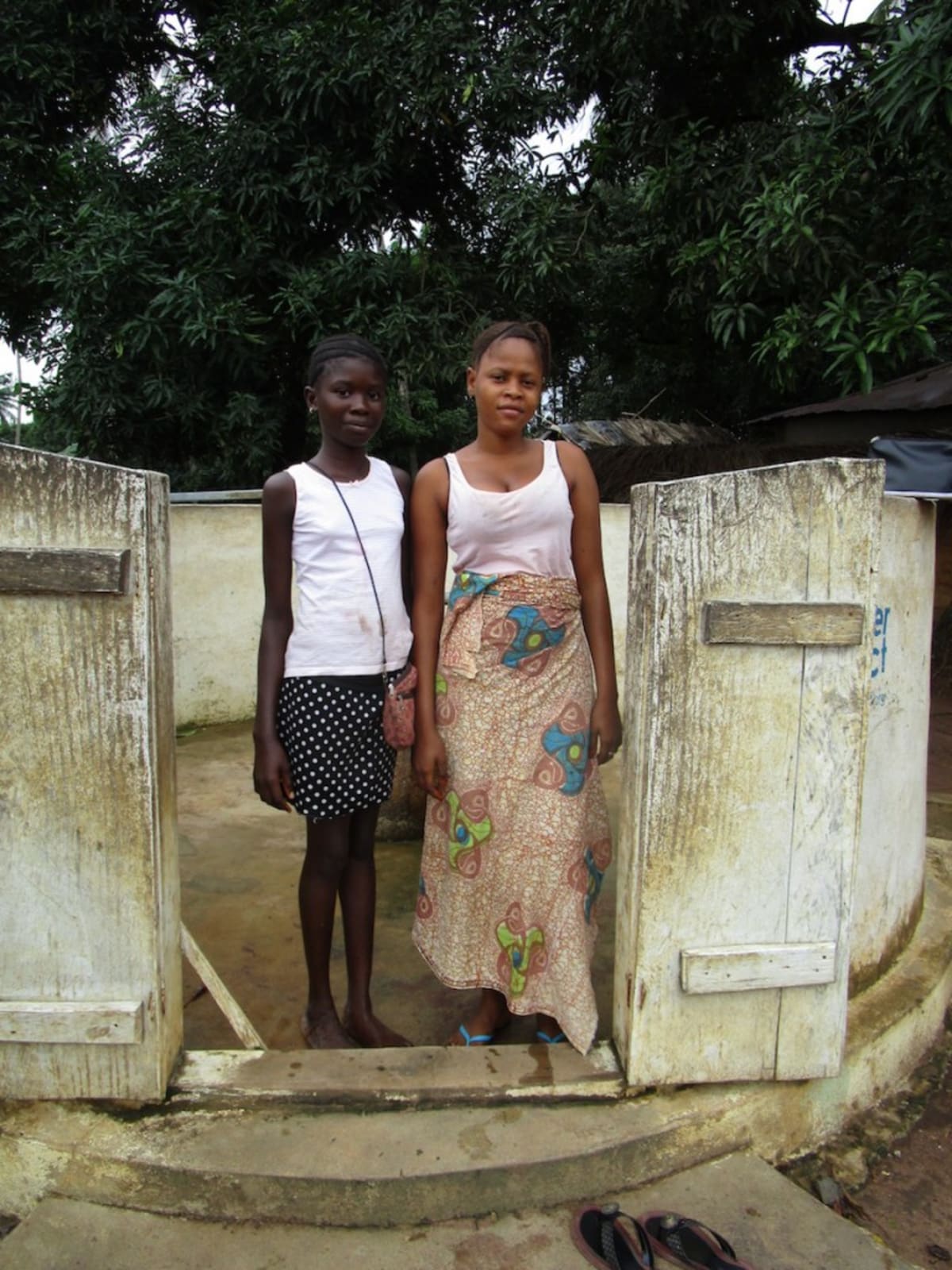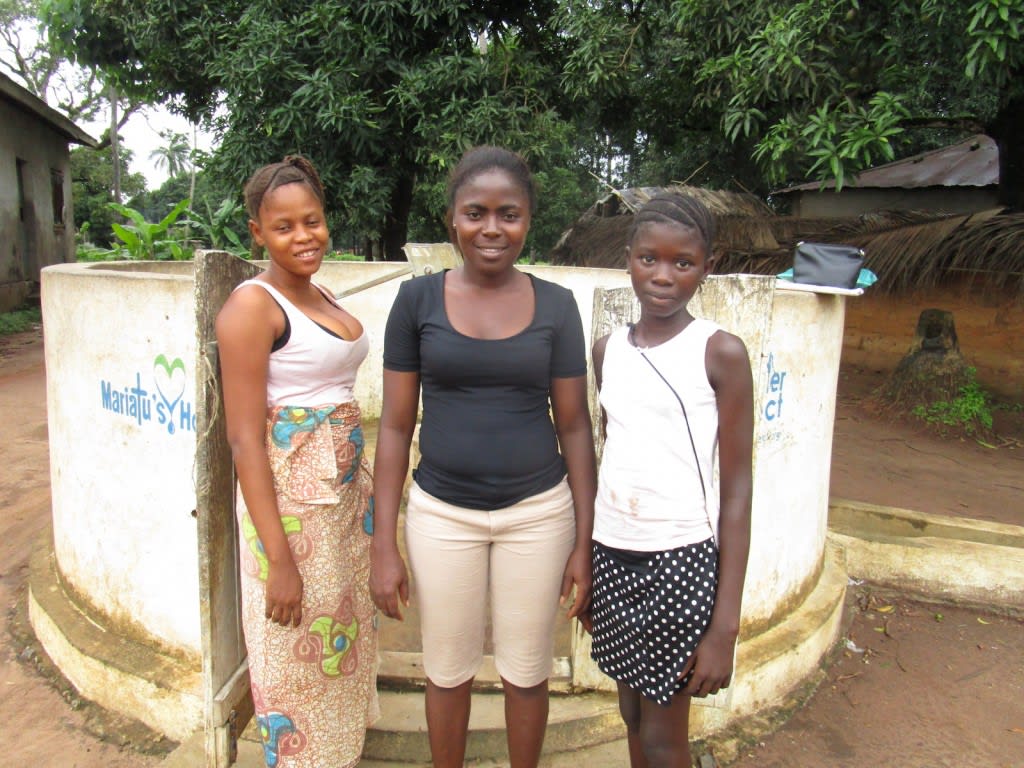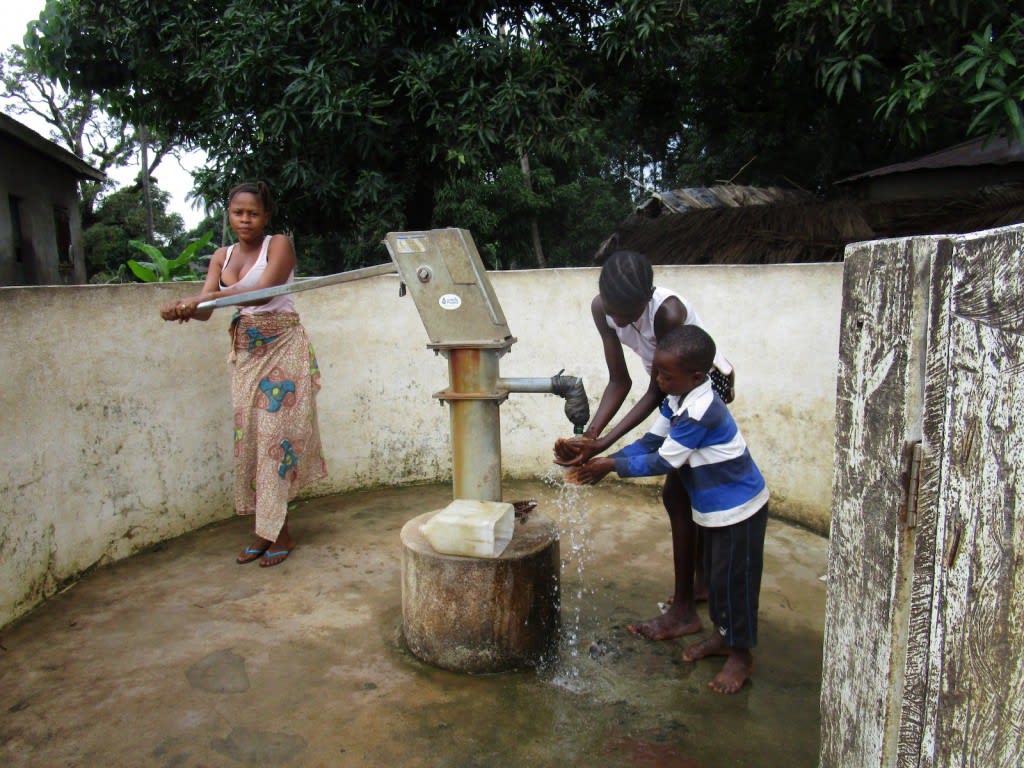Ebola’s Impact
Ebola has been a tragic reality for the people of Sierra Leone over the last two years. Though considered stable at the moment, the country is still very cautious.
Our teams have remained safe and are on the front lines of Ebola prevention through this water, hygiene and sanitation program. Your support acknowledges and celebrates their selfless work and bravery.
The entire team continues to express their gratitude for your support of communities in Sierra Leone, and we can’t wait to celebrate safe water together!
Please enjoy the following report comes straight from the field, edited for clarity and readability:
Welcome to the Community
Alimamy Amara Road runs through Lungitown in Sierra Leone. Though Lungitown has a huge population, we consider the population of the immediate village to be about 200 people from 51 different households.
A normal day starts with an early morning wakeup call for prayers. The majority of people in this area are practicing Muslims. People get up at 4am to ensure there is ample time for the long walk to the swamp to tend their gardens. These tens of miles of marshy swampland are full of the most beautiful assortment of vegetables. The main source of livelihood for this community is agriculture. Vegetables such as okra, tomatoes, corn, garden eggs, cucumbers, sweet potatoes and onions is only naming a few of the crops commonly grown here! The plantations have to be watered very early in the morning before the sun, and late in the evening after the sun has gone down to prevent the veggies from withering during the day's hot African sun. By ten in the morning, these local farmers and gardeners have moved on to weeding. It is a full-time job, with birds often coming to eat the vegetables; children and women normally spend the rest of their day driving the birds away with their weapon of choice: a slingshot. Children make loud noises and sing to scare the birds. At nightfall, everyone returns home with a bucket of water balanced on their head with enough water for the next morning.
Water Situation
Women and children fetch this water from the swamp that sits nearby and irrigates their crops. They must take off their shoes before wading into the water ankle-deep, dunking whatever smaller container they have into the marsh's water. This water is poured into a larger jerrycan with a lid which the woman or child will tote all the way back home. The walk back home to the village is about one kilometer, but it doesn't seem to phase the women and children. They travel in groups back and forth to the swamp, entertaining themselves with conversation or singing.
When the water arrives home, it is poured into larger barrels and left to settle before drinking. There are certain, less busy times of the day that locals feel water is clean enough to be drunk directly from the swamp. There's no doubt that the water is contaminated nonetheless. The water flows extremely slowly, and other women do their laundry just a few feet away.
Sanitation Situation
Over half of households have some form of pit latrine. A typical latrine is walled in by sticks with a tarp wrapped around them. Many of these are left open, and attract flies and wild animals that look for food. Open defecation was also observed to be an issue in this area. When we visited, community members could give us a tour of all the popular places the people without latrines would relieve themselves.
Under 25% of households have a hand-washing station, and no more than half have helpful tools like dish racks and clotheslines to dry their things. Since this is an agricultural community, trash is never wasted. Fish remains, leftover fruit and vegetable peels are consolidated and allowed to rot so they can use it as compost. All other trash is thrown in a garbage pit.
We met the oldest member of this community during our visit, an old gardener by the name of Kemoh Saccoh. It seems that every member swings by his home to say hello at least once a day. Kemoh is proud of his good health! He boasts that all his teeth are still intact, that he's never smoked, and eats his vegetables. He worries what will become of his children and grandchildren after he passes. "They are all dying before me. I guess I have been blessed or am I cursed? I have buried a lot of my children and other loved ones. The nearest clinic is miles away."
Plans: Hygiene and Sanitation Training and Hand-Washing Stations
Community members will be trained for three days in hygiene and sanitation. The facilitator will use the PHAST (Participatory Hygiene and Sanitation Training) method to teach participants how to make their own hand-washing stations, wash hands, construct proper latrines, and many other topics. By the end of training, each household will have their own hand-washing station.
Plans: New Borehole
The well will be located at #8 Alimamy Amara Road. This address is not in the center of the community, but it is the safest distance away from any latrines. The other locations surveyed were too close to latrines and garbage pits. In order to guarantee safe water, a small percent of the community is willing to make an extra effort and walk the extra distance to fetch water from the well.



 Rehabilitation Project
Rehabilitation Project






















